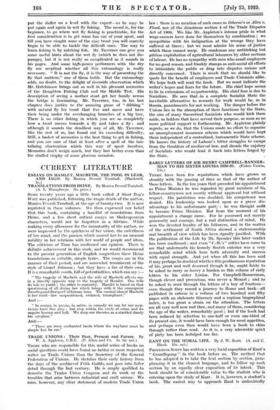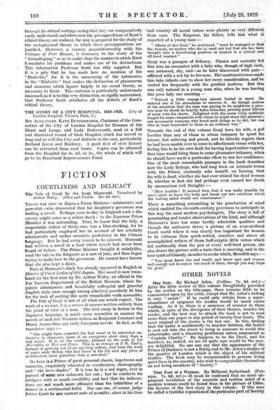PROFESSOR Scow has written a very lucid exposition of Kant's
" Grimdlegung " in the book before us. The method that he has adopted is to take the text section by section, para- phrasing it in the clearest language, and to follow up each section by an equally clear exposition of its intent. This book should "be of considerable value to the student who is entering upon the study of Kant. It is, however, a student's book. The easiest way to approach Kant is undoubtedly
through his ethical writings seeing that they are comparatively easily understood; and when once the presuppositions otKant's ethical theory are realized, the way is prepared for the study of the metaphysical theory in which these presuppositions are justified. However, a cursory . acquaintanceship with the Critique of Pure Reason, is necessary to the study of the " Grundlegung " so as to make-clear the manner in which Kant fumulates his problems and makes use of his distinctions • This information Professor Scott has ably supplied. But it is a pity that he has. made here no mention of the "Dialectic," for it is the uncovering of the antinomies in the "Dialectic" that makes the distinction of phenomena and noumena which figures largely in_ his moral theory, so necessary to Kant. This omission is particularly unfortunate inasmuch as it is to this very distinction, so rigidly maintained, that Professor Scott attributes all the defects of Kant's ethical theory.



























































 Previous page
Previous page